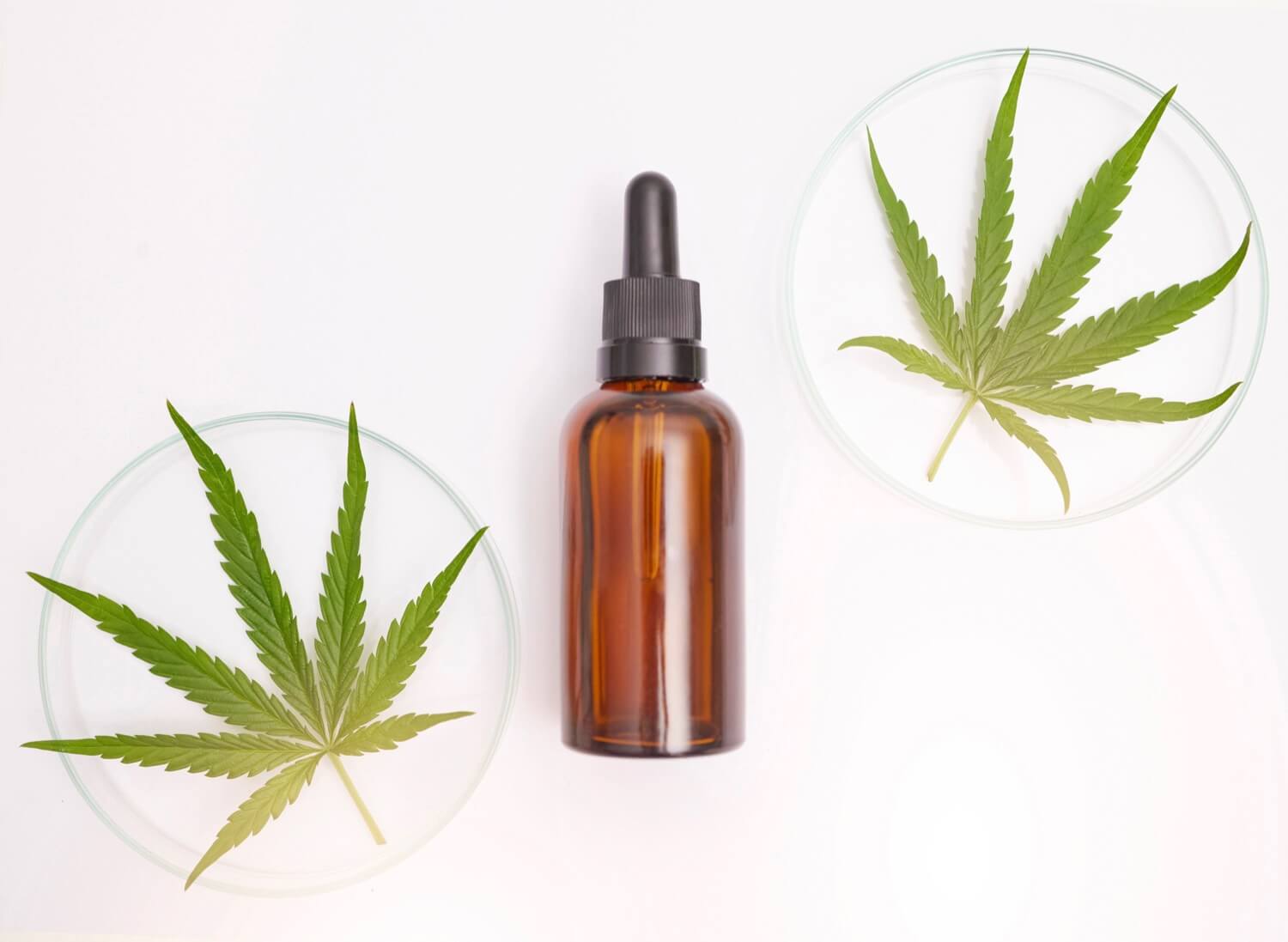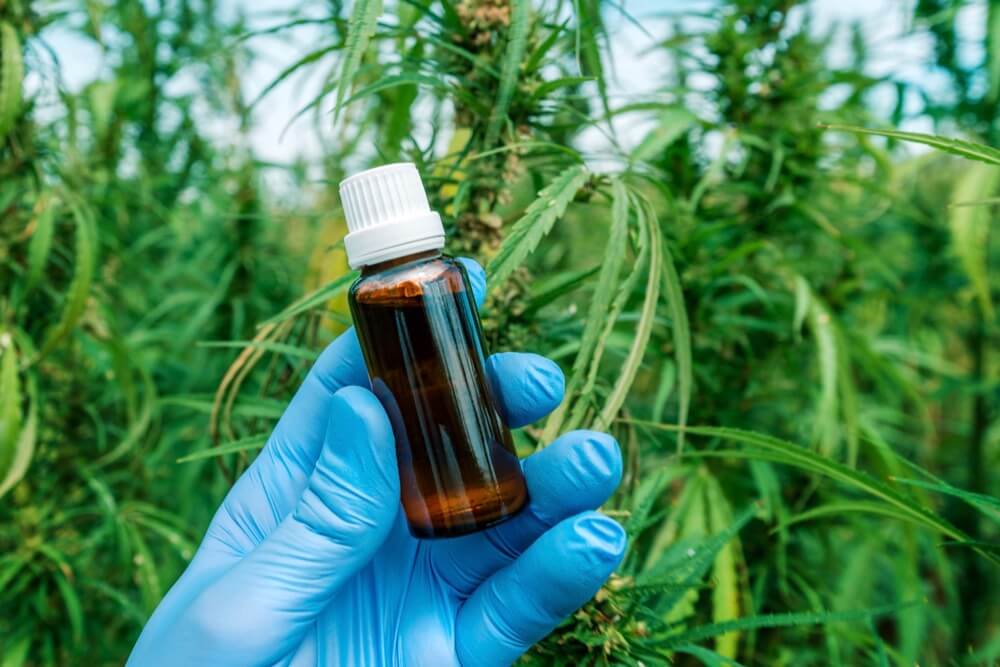
If you’ve ever been to a marijuana dispensary, you’re probably familiar with the wealth of new cannabis products that hit the market every day.
But one highly potent — and often homemade — cannabis oil has been getting more attention: RSO.
RSO, better known as Rick Simpson Oil, was developed by the Canadian medical marijuana activist Rick Simpson in 2003. Many people have used it over the last two decades for the treatment of various health conditions, including chronic pain.
However, it’s important to keep in mind that research has yet to confirm whether RSO can do everything that its proponents claim.
Below, we’ll cover what you need to know about Rick Simpson Oil, from the effects it produces to the potential benefits it could offer medical marijuana patients.
Rick Simpson Oil is a full-spectrum cannabis oil that includes the full range of cannabinoids, terpenes, compounds, fats, and plant materials contained in the entire cannabis plant.
Typically produced from indica strains, which have more of a sedative effect, RSO contains an unusually high amount of THC. THC is the cannabinoid that produces a psychoactive “high” effect.
Because it’s both unfiltered and unrefined, it’s quite different from other cannabis oils.
Most cannabis oils are distilled until they’re pure and clear. That means they also contain far fewer (and less diverse) terpenes, which are the plant compounds that can produce a pain-relieving effect.
RSO contains all the plant material, making it significantly higher in THC content and far more potent than other cannabis-derived oils. And by higher we mean much higher.
RSO can contain up to 90% THC, with as much as 600mg of THC in one single syringe.
Rick Simpson Oil looks and feels more like hash than it does other cannabis oils. The unfiltered extraction process, which may include the use of ethanol, naphtha, or CO2, makes it very dark in color — sometimes almost black. It also doesn’t have the oily, liquid consistency that most cannabis oils have.
Why?
Because most cannabis oils are filtered and combined with other carriers, like coconut oil or olive oil. RSO is not.
There are several ways to use RSO to enjoy the potent high caused by its high levels of THC. Because of its intensity, it’s recommended to start with one dose no bigger than half a grain of rice.
Even avid proponents of the product recommend that you do not consume or use more than 60 grams in total over a 90-day period.
Most people apply RSO topically or consume it orally, either sublingually (under the tongue) or by adding it into food. Cannabinoids burn off when cannabis is cooked at temperatures above 300ºF, so if you want to get the full effect of RSO, it’s best to add it to beverages or food that’s already cooked.
How you consume it factors into how long it will take to feel the effects. For example, when taken sublingually you can feel the effects in as little as five minutes. When consumed with food or digested in an edible form, it can take up to an hour for it to kick in.
Some people choose to vape the oil or add it to cannabis flower and smoke it, but these methods are not recommended for several reasons.
There are known health and safety risks to vaping or smoking RSO.
Depending on how it was extracted, RSO may contain trace amounts of unpurged alcohol from the use of ethanol or naphtha. (Naphtha is similar to butane or lighter fluid.) These trace amounts are safe for oral and topical applications but inhaling them can irritate and damage the respiratory system.
Because chlorophyll, fats, and lipids also remain from the unfiltered extraction process, smoking RSO is also less effective than applying it topically or taking it orally.
In addition to these health and safety concerns, vaping RSO is a bad idea simply because it’s so thick and viscous. It can damage and clog vaping pens.
Like other products that contain high levels of THC, the side effects of RSO are minimal, but the high is powerful if it enters your bloodstream. When taken orally and digested, the body converts THC to 11-hydroxy THC, which is five times more psychoactive than when the product is applied topically. When applied topically, it does not enter your bloodstream, so there are no psychoactive effects.
No matter how much of a cannabis connoisseur you may be, start with a very small amount of RSO to see how it affects you.
By now you’re probably wondering … who, exactly, is Rick Simpson?
Rick Simpson worked for years as a Canadian engineer until he suffered a head injury in 1997. Battling tinnitus and suffering dizzy spells, Simpson’s physician-prescribed medications weren’t working, so he turned to medical marijuana and began producing his own cannabis extracts.
In 2003, Simpson was diagnosed with basal cell carcinoma, and he applied RSO topically to fight the growth of his cancerous cells. He attributes his use of RSO to winning his battle with skin cancer.
While living in Canada, Simpson produced the oil and gave it away for free. He gave the product to thousands of people, which resulted in the Royal Canadian Mounted Police raiding his home and seizing his cannabis plants.
In 2018, Rick Simpson suffered a stroke. He now lives in Croatia and provides dosage info and instructions on how to produce the oil yourself, free of charge, on his website. There, you’ll also find his entire protocol, including how much to use and when to take it.
He never patented the product or his method of making it. Instead, he became a cannabis advocate, working on legalization efforts and trying to establish marijuana as a legitimate treatment option for people with certain medical conditions, including cancer.
You Might Like: How Does Medical Cannabis Affect Quality of Life?

Like other cannabis products, RSO offers a variety of benefits. The top benefits that users report include:
Some people also report that it can provide topical relief for a variety of skin conditions, including burns and rashes.
These benefits can help medical patients with a wide variety of medical concerns and conditions. If you think you could benefit from RSO, consult with your physician to see if it might be a worthwhile addition to your existing treatment plan.
All products that contain THC have potential side effects. They include, but are not limited to:
You should never consume or use RSO while driving or operating heavy machinery. And if you currently take medications prescribed by your physician, take extra precautions. THC can interact negatively with a range of medications, including antidepressants and opioids.
Because of its many benefits, RSO has become a part of the treatment plan for many patients with various medical conditions, including:
Rick Simpson applied RSO topically to his skin and believes it cured his skin cancer, but there is no scientific evidence to back his claim. However, thousands of medical patients have found the product to be useful in aiding in the treatment of various conditions.
There is little scientific research to support RSO as a cancer treatment, but this peer-reviewed study on how RSO decreased leukemic blast cell count in a terminal patient does suggest that it can fight cancer cells. More research is needed before researchers can say if, or how, this is possible.
Yet it may be useful for cancer patients for another reason altogether:
There is data to show that RSO reduces vomiting and nausea, and this can be highly beneficial for patients undergoing chemotherapy.
No matter what medical condition you have or how you choose to use RSO, do so carefully. Weigh the pros and cons to determine if the benefits outweigh the risk.
Some people attempt to make their own RSO. Depending on where you live, that may be illegal.
Regardless of where you live, it’s also not safe to make it yourself unless you know exactly what you’re doing.
We do NOT recommend that you attempt to make RSO yourself. It’s much easier — and far safer — to purchase readily available products.
Making RSO requires heating, mixing, straining, and using a solvent, such as grain alcohol, ethanol, or butane. Those solvents are flammable and therefore dangerous.
If you decide not to heed the warnings and opt to make your own RSO, it is recommended to use an indica strain of cannabis rather than a sativa strain. Indica has more of a relaxing, sedative quality.
Read About: Which States Offer Medical Cannabis for Mental Health Conditions?

There are many unregulated, “homebrewed” RSO products on the market, but buying, using, and carrying them may be illegal where you live. To be safe, it’s best to only purchase RSO in licensed state dispensaries where cannabis products are legal.
Keep in mind that even in states where medical and/or recreational cannabis products are sold, you might not be able to purchase regulated RSO.
Here’s why:
Every state sets a legal limit on how much THC a product can contain. Because a cannabis concentrate like RSO is so high in THC, it may exceed your state’s limit, making it against the law to buy, use, or carry, even in states where recreational or medical cannabis is legal.
Most states have legalized medical cannabis to some degree. In fact, the only ones that have not legalized medical marijuana yet are:
There are also some states that have only legalized CBD oil (which is different than the THC-rich RSO) for medical marijuana patients:
You cannot legally buy, carry, or use RSO in any of the above-mentioned states.
If you live in a state where medical marijuana is legal, becoming a medical marijuana patient and obtaining a medical marijuana card may make it possible to purchase regulated RSO products at licensed dispensaries.
Dispensaries carry it in different forms made for topical and oral use, including edibles, syringes, and capsules. Because it is not intended for smoking, you will not find it in vape pens or cartridges like other cannabis oils.
We’ve said it before and we’ll say it again: RSO is very high in THC and therefore very potent.
For many medical cannabis users, products lower in THC are preferred. You can access a variety of medically approved cannabis products at a local dispensary if you have a medical marijuana card in your state.
Getting your card requires you to apply through your state’s health department and have a physician or a licensed healthcare professional certify that you have a qualifying medical condition. (Qualifying conditions vary from state to state.)
The easiest way to start the process is to visit Marijuana Doctors. Marijuana Doctors can connect you with a licensed physician in your state who can diagnose you with a qualifying condition and certify you for a medical marijuana card.
Rick Simpson Oil has benefits and is being researched and studied as a potential medical aid for patients with diverse conditions. However, the extremely high THC content makes it too potent for some.
Like all THC products, you should only buy RSO legally in state-licensed dispensaries. It’s also important to know the carrying limits and possession amounts allowed in your state so that you don’t run into trouble with law enforcement.
No matter how many benefits it provides, it’s not worth risking imprisonment or having to pay hefty fines and fees for purchasing it illegally, making it at home, or carrying more than the legal limit.
State laws on marijuana are subject to change at any time. Visit Marijuana Doctors to stay abreast of changes to the law and learn about the current marijuana legalization efforts in your state.
Up Next: Understanding the Difference Between ‘Decriminalization’ and ‘Recreational Use’
No Information on MarijuanaDoctors.Com should be used to diagnose, treat, prevent or cure any disease or condition. You can view our Full Disclaimer here.